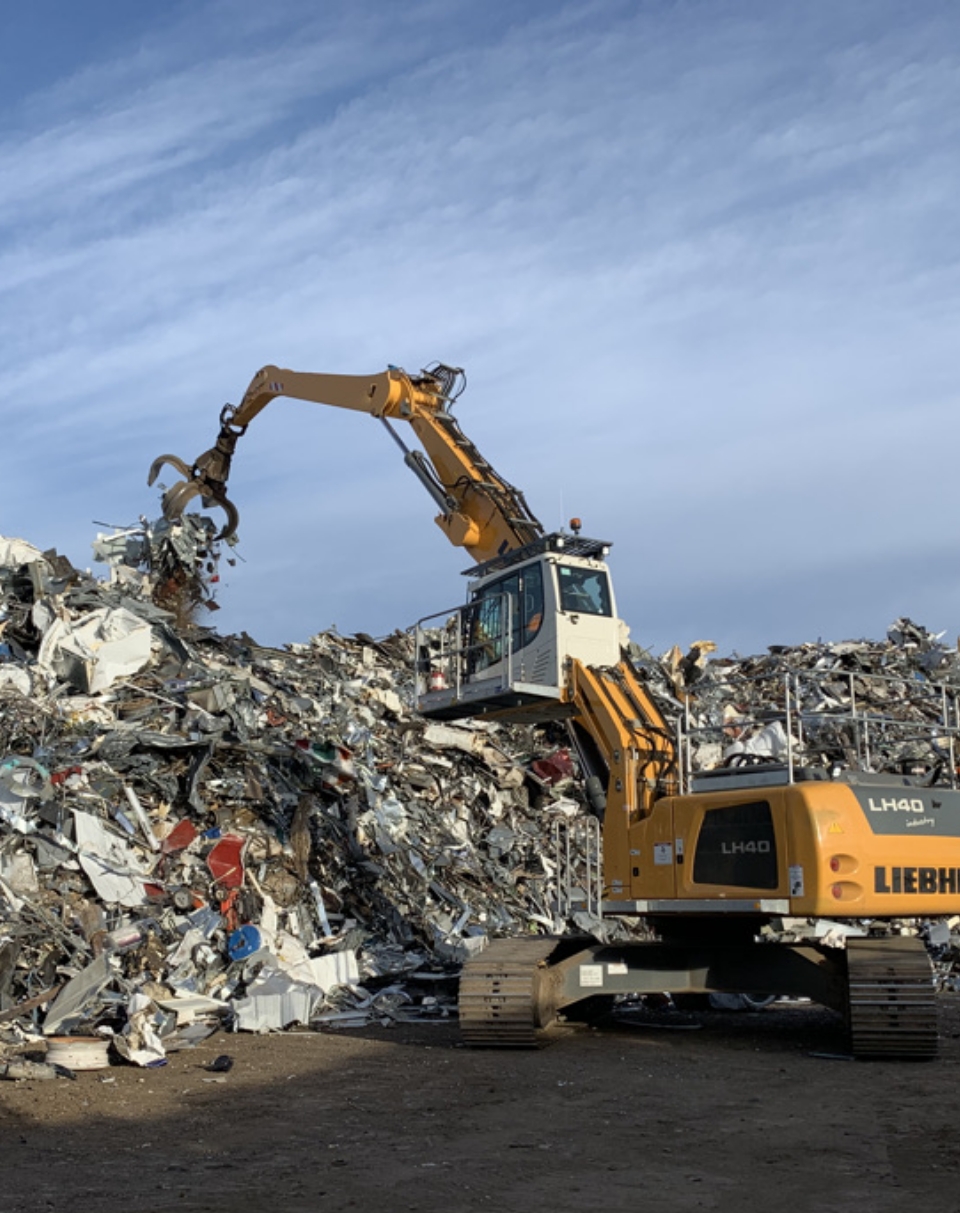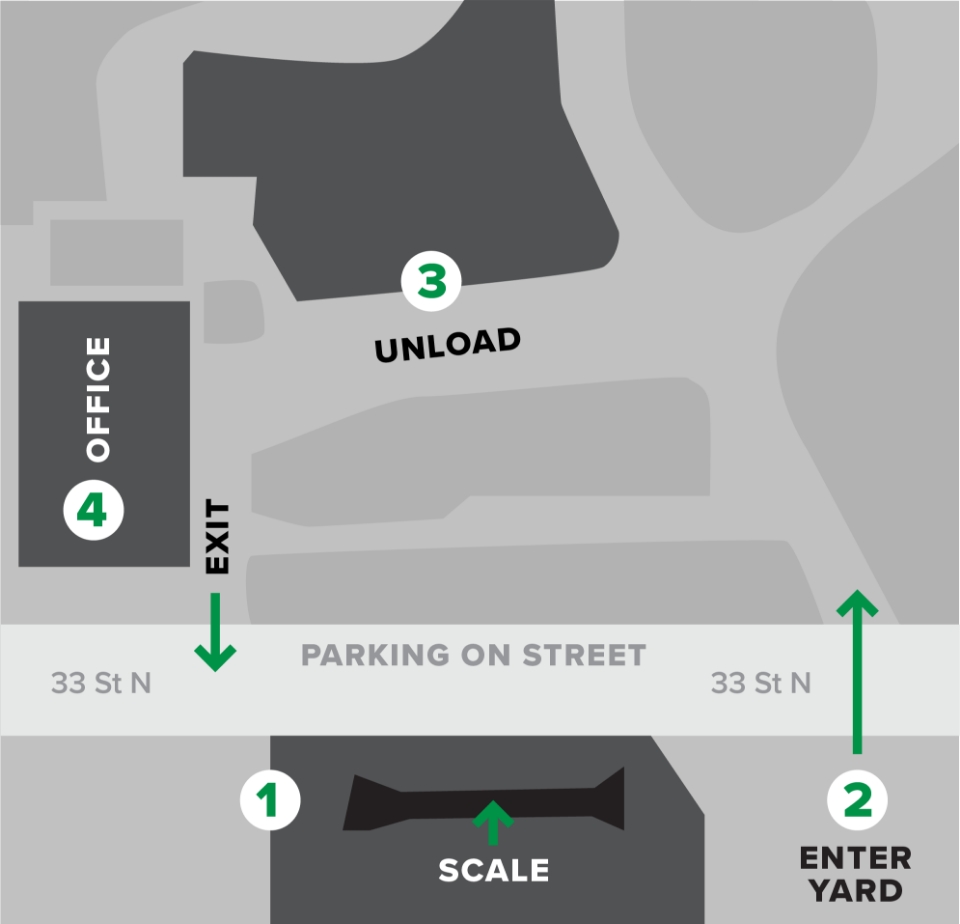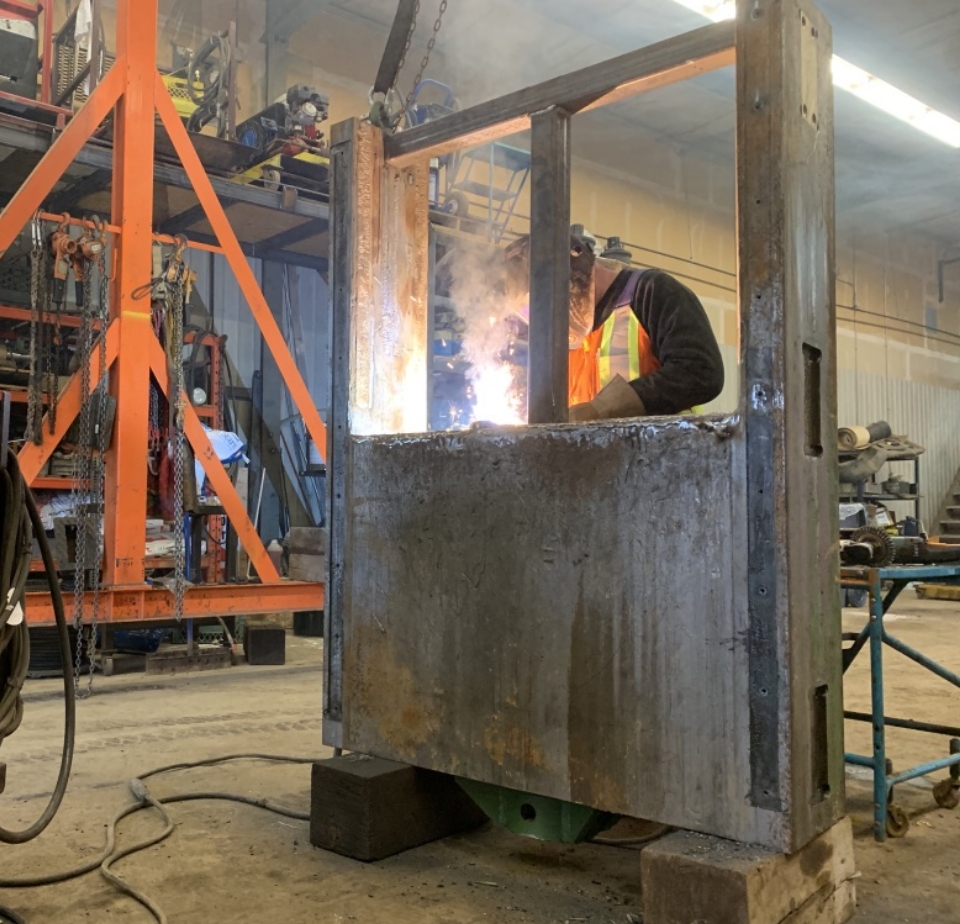
At National Salvage, you can expect:

“Really great service and helpful staff. Great price for the copper and Aluminum that we brought in. We’ll be coming here again and again. “
– Kyren & Jacinda

Upon arrival, proceed onto our certified scale to get an initial weight of your vehicle and your scrap.

After receiving a green light, follow the road where our operators can safely unload your scrap metal at the designated location within our yard.

After unloading your scrap, return to our scale for the final weighing. The weights taken in Step 1 and Step 3 will determine the amount of scrap recycled.

Once we have recorded your weights, park along the street & proceed to our office to receive your cash or preferred payment.

“Great prices. Knowledge and service unmatched. By far the best in the business. Thanks Gents.“
– Brent Nunweiler

We recycle these goods and give you cash for it.
A/C Units *
Aluminum
Auto Cast
Batteries
BBQs
Brass
Bronze
Car Rims
Cars
Cast Iron
Compressors
Copper
Dish Washers
Dryers
Electric Heaters
Engines
Extension Cords
Extrusion
Faucets
Fridges/Freezers*
Heating Ducts
Lawn Mowers
Lead
Magnesium
Microwaves
Motors
Old Tools
Oven/Stoves
Plate
Pop/Food Cans
Radiators
Range Hoods
Siding
Snow Blowers
Steel
Tin
Transmissions
TVs
Washers
Zinc
A/C Units: Must be appropriately drained of freon before transporting to National Salvage.
Fridges/Freezers: Must be appropriately drained of freon before transporting to National Salvage.
Pressurized Tanks: Propane tanks are best recycled through city dump locations. These items can be very dangerous to recycle, even empty, and should not be brought to National Salvage unless the valve is already removed.
We will NOT take these prohibited items:
Pressurized/Sealed Tank
Airbag Containers (Unspent)
Asbestos
Actuators
Closed Steel Drums
Freon Tanks
Hazardous Materials
Hazardous Scrap
Tanks
Oxygen Tanks
Unclean Steel Drums
Volatile Ballast with PCBs
EV/hybrid vehicles
Propane Tanks – if the valve is still intact. Propane tanks are acceptable if the valves are removed.
Top
Dollar
for Your
Metal
Smooth
and
Streamlined
Process
Sustainable
Practices
Experience
Our Legacy
of Trust
Fill out this form or call us at 403 328 1721.
COPYRIGHT © NATIONAL SALVAGE
National Salvage is your trusted partner for scrap metal recycling in Lethbridge. We are committed to providing sustainable and responsible metal recycling solutions to individuals and businesses throughout the city. With our expertise and state-of-the-art facilities, we make it easy for you to dispose of your scrap metal while contributing to a greener environment.
Scrap metal recycling is essential for reducing waste and conserving valuable resources. At National Salvage, we accept a wide range of metal materials, including ferrous and non-ferrous metals, such as steel, aluminum, copper, brass, and more. By recycling your scrap metal with us, you not only prevent it from ending up in landfills but also help conserve energy and reduce the need for raw material extraction.
Our metal recycling process is efficient and environmentally friendly. When you bring your scrap metal to us, our trained professionals will weigh and sort it, ensuring that each material is properly categorized for recycling. We adhere to strict industry standards to ensure the highest level of safety and compliance throughout the recycling process.
As a leading metal recycling company in Lethbridge, National Salvage offers competitive prices for your scrap metal. We believe in fair and transparent transactions, providing you with a fair value for your recyclable materials. Whether you have a small amount of scrap metal or a large industrial load, we have the capacity to handle it efficiently.
At National Salvage, we take pride in our commitment to customer satisfaction. Our knowledgeable staff is always available to answer your questions, guide you through the recycling process, and help you maximize the value of your scrap metal. We strive to make your experience with us seamless and convenient, ensuring that you can easily incorporate metal recycling into your waste management practices.
Join us in creating a more sustainable future through scrap metal recycling. Contact National Salvage today to learn more about our metal recycling services in Lethbridge or to schedule a drop-off. Together, we can make a positive impact on the environment while supporting a thriving recycling industry in our community.